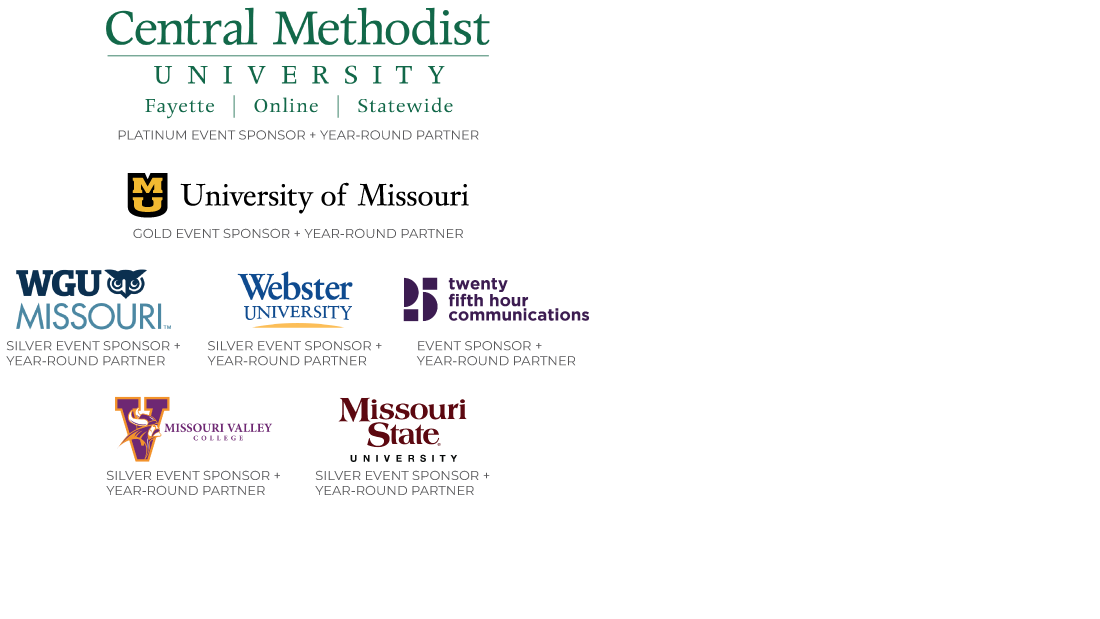Proposal Submission Guide
Thank you for your interest in presenting at the MCCA Annual Convention and Tradeshow! To assist you in submitting a proposal for consideration, we are have developed this guide outlining the content within the online submission form. Please review this information and collect all pertinent information before making a formal submission.
Scoring & Selection Process
Proposals are selected to ensure education sessions create a comprehensive, non-promotional, objective and diverse program. All submitted proposals and their ratings are considered to ensure topical balance within the program, educational needs expressed through member surveys and feedback and MCCA's strategic goals.
Proposals will be reviewed by the MCCA Advisory Board using the following criteria:
Proposals will be reviewed by the MCCA Advisory Board using the following criteria:
- Relevance
- Topic coverage
- Presenter knowledge
- Engagement strategies
Interactivity and Audience Engagement
Based on feedback received from convention surveys, attendees expect more interactivity in session presentations as it helps reinforce learning. Posing questions and including activities in your session can make an enormous difference. Involving your audience helps make the ideas and thoughts you are trying to get across more memorable and make attendees feel like they are part of the conversation. Here are a few tips to make your presentation more engaging:
- Incorporate a live poll into your slide deck to get audience feedback, help guide your presentation or to use it as a quiz tool.
- Use a couple of your slides as quick “quizzes.” Ask the audience to answer or fill in the blanks in your slides.
- Perform a demo and have an audience member participate in it.
- Divide your audience into small groups to discuss the topic among themselves and share it with the larger group afterward.
- Take time at the end of your presentation to ask your audience to share their thoughts about the topic.
- Place Q&A opportunities in the middle of a presentation to wake up your audience and invite a little participation. Even if you don’t answer questions right away, the unexpected invitation to ask a question can act as a trigger to encourage audience members to speak up.
Submission Form Components
Session Format |
Breakout Session: 50-minute session presentation Plenary Session: 3-hour hands-on session taught in classroom style |
Presentation Title |
Avoid making titles too long. Effective titles are clear and concise (125 characters max). |
Program Track |
Enrollment, Retention & Completion Recruiting, retaining and graduating students are ongoing challenges for community colleges. Join your colleagues in exploring new strategies and best practices for increasing enrollment and driving student success from start to finish. Workforce Development: Partnerships & Apprenticeships A robust economy depends upon a highly skilled workforce. These sessions explore the many ways colleges are meeting the workforce needs of their communities, particularly through apprenticeship programs and partnerships with local employers. Learning & Teaching College professionals continue to develop new and innovative ways of approaching learning and teaching. These sessions afford educators the opportunity to share their ideas and innovations with colleagues. Leadership & Institutional Transformation Accountability mandates, fluctuating funding, demographic shifts, and the rapid pace of change within higher education continue to challenge college administrators to explore innovative strategies for leadership and organizational change. Strategic Planning & The Community College Workplace Every day, both teaching and non-teaching professionals work to advance the mission of Missouri’s community colleges and workforce partners. This ongoing track will explore innovative and forward-thinking initiatives that will impact the future of community colleges, from financial planning and human resources to continuous improvement, strategic management and everything in between. HLC Accreditation HLC accreditation assures quality by verifying that an institution meets standards and is engaged in continuous improvement. HLC's institutional accreditation includes all degree levels as well as on-site and online offerings. This track will ensure participants going through this process or preparing for an upcoming review will have the most up-to-date information and communication regarding best practices. Special Topics With the complexity of roles and responsibilities at different institutions, sometimes our work doesn't fit neatly into a single category. Interested in something more specific? Explore a variety of targeted topics, trends and challenges within higher education today. |
Target Audience This information will be used on the convention website and mobile event app. It is not part of the scoring and selection process. |
|
Presentation Description This is the description of your session as it would appear in our online program for attendees. |
Describe what you plan to cover in your presentation, and what an attendee can expect to learn if they come to your session. Do not use special characters (a character that is not an alphabetic or numeric character) or formatted text (bold, italics, underlining). |
Preferred Presentation Date |
Concurrent sessions will be held Wednesday, November 30 and Thursday, December 1. We will try our best to accommodate your preferred date and time, but please note that these requests are processed on a first come, first serve basis. In order to better accommodate these requests, we ask that you provide a detailed justification of the reason(s) for your preferred date. |
Speaker Information |
Only presenters and co-presenters who will actually be in attendance should be listed. You may have many people who worked on your project, but please list only those who will be giving the actual presentation. |
Audio/Visual Requests |
All rooms will be set-up with an LCD projector, screen and PC laptop. MCCA does not provide Apple/Macbook adapters. If you need additional audio/visual equipment, MCCA will invoice this equipment at your own cost. Please check only equipment essential to deliver your presentation and consider alternatives when possible. Technology should be utilized only when it significantly enhances the quality of your presentation. MCCA cannot provide setup assistance to individuals at the convention. |
Questions?
If you have any questions regarding the call for proposals or online submission form, please contact us at admin@mccatoday.org.

